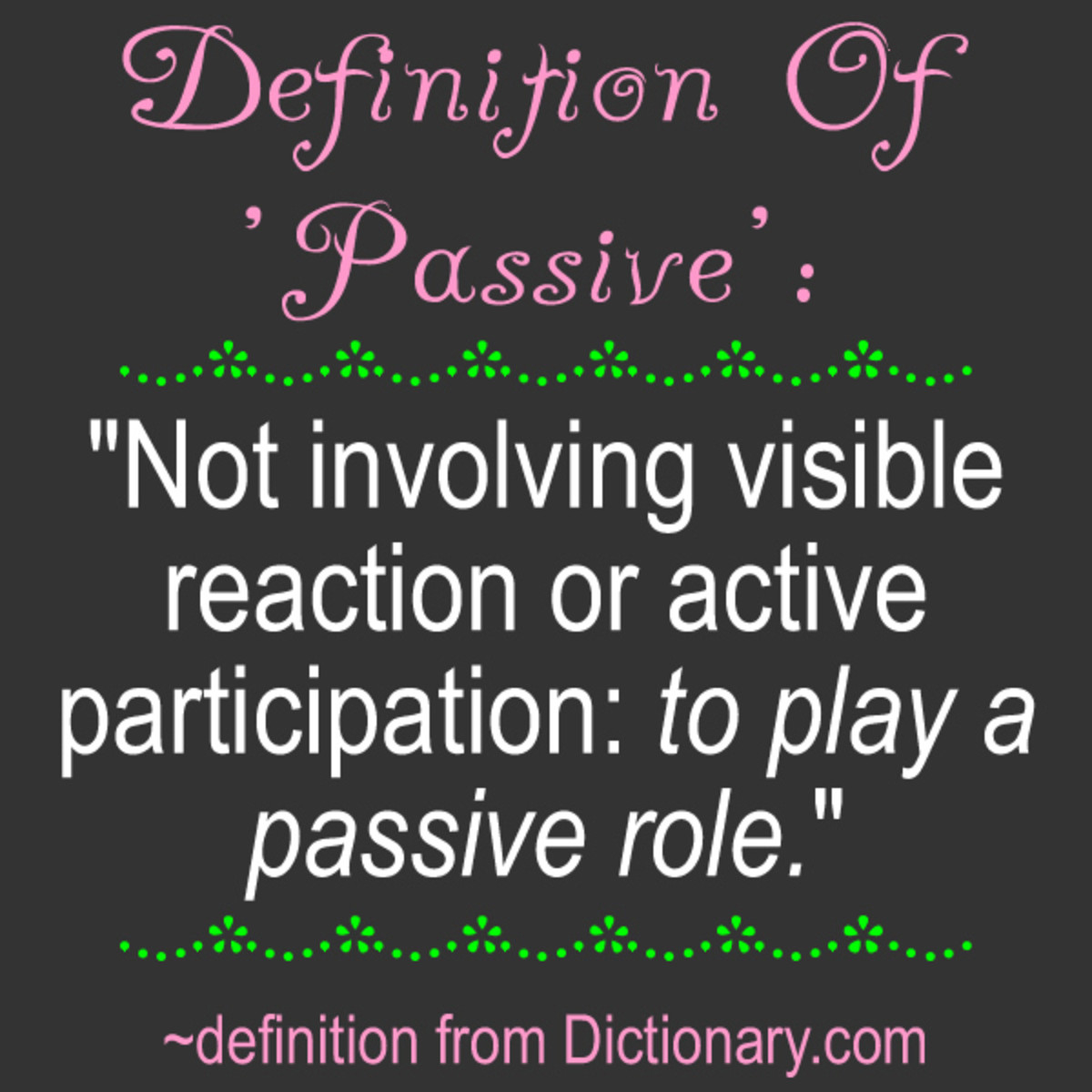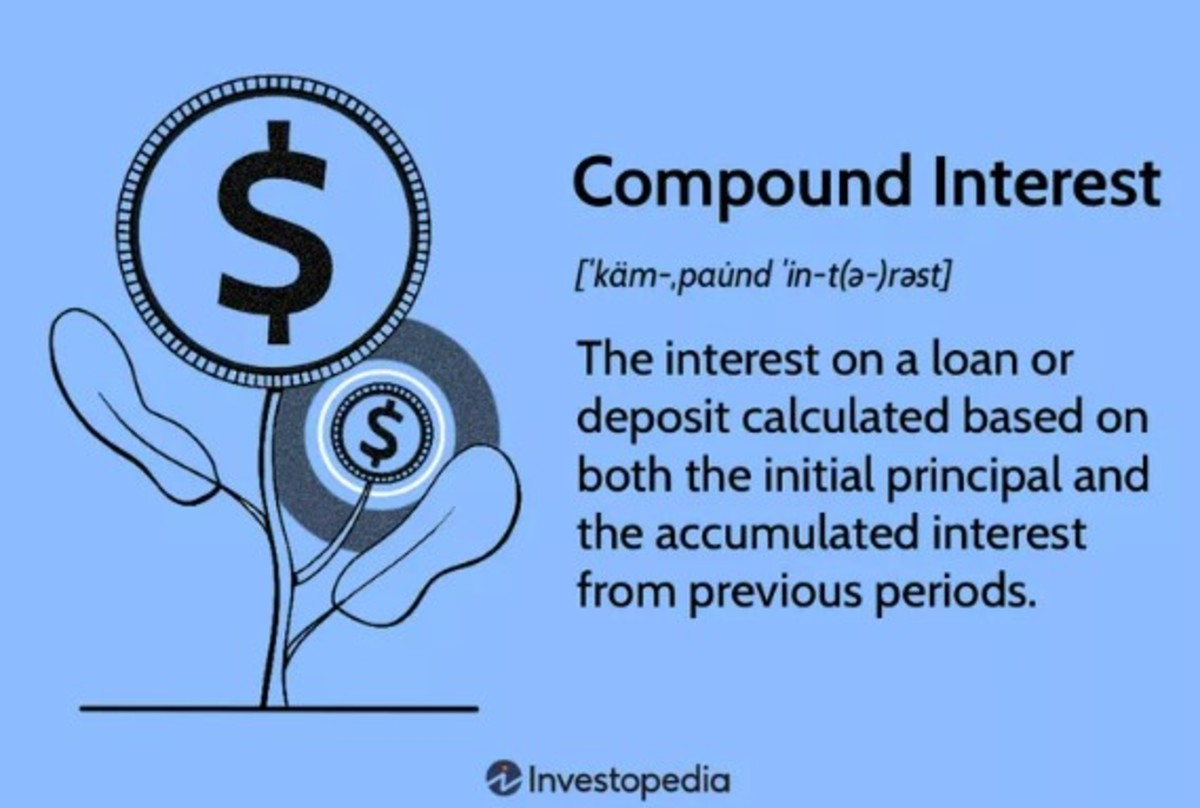How to Start Using Passive Income
What is Passive Income, and Who Cares What I Have to Say on the Subject?
I'm not a banker or a Wall Street investor, and I'm not rich. I'm not a bigshot with billion dollar earnings, and I wasn't a finance or accounting major in school. In short, I'm just like you, except maybe 2 or 3 years down the line. I am a regular guy with ambitions to have a passive income stream, and I can help you!
Passive income, as I'm defining it here, means doing a lot of work up front so that you don't have to continue to do much (or any) work on something, but you'll continue to generate revenue indefinitely. I'll define the five basic sources of potential passive income as I see them right now, and I'll give you my own personal experiences with each one thus far, including a little research I've done on each concept. At the end, you will at the very least have a rough idea of which direction to head in first.

Quick Caveat
The first step to generating passive income needs to be a twofold concept:
First, make sure you are out of debt (the link is a quick article I wrote suggesting how to make this work for you without sacrificing your lifestyle). Once you're no longer under the gun from the credit card companies, you can focus a very small percentage of your money in a positive direction, or at least stop hemorrhaging money. Second, allocate resources to setting up your passive income streams. This boils down to either time or money. If you're like me, time is going to be the more available of the two resources at first, but eventually you'll make the shift to extra money, and your time will become more available.
Writing articles - poll
Have you written articles anywhere yet?
Method 1: Royalties (Simple Example: Writing)
Main resource required: time
The main idea: Royalties are fun. You essentially create intellectual property of any sort, and then you allow someone to license it. Every time someone purchases the IP (intellectual property), or sometimes every time they view, listen to, or watch it (if there's ad revenue), you make a little bit of money. You can write articles, create music, make an indie movie, or even take pictures and then allow a site to put them online.
How to get started: I've had a great experience here on Hubpages. There are quite a few other sites out there, and I've written for Infobarrel (trustworthy), Bubblews (very low pay and not extremely trustworthy ownership), Zujava (not trustworthy ownership), and Squidoo (RIP) as well. All have their quirks, and you'll need to use your judgment (although Hubpages is kind of a no-brainer since it's right here and very easy to use). You'll need to work hard at first to build up a good social network both on the site where you're writing (don't neglect this network!) and via other social media like Facebook and Twitter. You won't blast out there into Googleville right away, but over time you will learn the ropes and get better at this.

Method 2: Real Estate Investing
Main resource required: money (but also a fair amount of time)
The main idea: You purchase a home or apartment unit (or, later, a commercial real estate property). You rent said property out to tenants, who pay you monthly rent that is hopefully considerably more than your monthly mortgage payment. When you have a good handle on this, you hire a property manager at a percentage of the rent in order to help you take care of the property (instead of constantly fixing it up yourself).
How to get started: Step one for me is to pay off my current mortgage. That's what I am doing right now. I own a small house (about 1000 square feet), and it's very important to me to have it paid off by the time I'm 40. I've been advised by friends to go ahead and start investing in real estate now, the premise being that if I could rent out my current home for more than I'm paying for it, I could just move out, but two things in that concept don't sit well with me. First, I don't want to move. I like my house. Second, I am not going to feel comfortable investing (especially post-2008 real-estate-bubble-bursting) until my own property is 100% paid off. I mean to make that happen soon by paying an extra $1600 per month against the principal (yes, I'm completely serious).
My next plan is to purchase another small single family home like this one, and rent it out. I've had enough bad experiences in the past with landlords to know that I don't want to become the slumlords I hated growing up, so I won't do that. Instead, I'll start really small, building my assets up one home at a time until I can afford a property manager to take over the day to day tasks. I figure I'll buy my second house (first "investment property", although your home is really your first) in a few years, after I have a substantial down payment (at least $40,000) to lay down so that the monthly mortgage payment (plus an extra $200 or $300 against the principal) isn't going to be higher than what I could rent the house out for.
Your first step, though, should be to own your own home. If you're paying rent, consider purchasing a house instead of flushing that potential investment down the drain every month. Put yourself in a position to where you will own your own home, even if it's 30 years down the line! If you are making mortgage payments on your home, consider investing another $100 a month against the principal if you can afford it. Cut down the time you'll be spending money by several years just with that one simple step!

Method 3: Own Your Own Business
Main resource required: time and money in equal portions, but so much time in the beginning
The main idea: If you're good at doing something and think you can do it better than anyone else, you'll likely start your own business at some point (or you'll start 2 or 3 if you're like me). It's quite a rush, but you'll need to educate yourself by reading the E-Myth Revisited before you go too much further. This will give you the concepts of how to do business properly without going insane (and losing sleep, and having all your free time eaten up). Keep in mind that for the first decade, running a business is anything but passive, and may continue to be an active venture for you, as it still is for me at Revolution BJJ and US Grappling.
How to get started: Read the aforementioned book. Seriously. Get a real idea of the hours you'll be spending, and prepare to be all-consumed for the first couple of years building up your structure. Marketing will be tremendous in the beginning, so you'll want to educate yourself as to how that might work (check out this article on how I tripled the size of my gym with Facebook marketing on a low budget). You'll likely want to start by forming an LLC to make it official (LLC means you can lose money the first few years without having to go bankrupt, and your personal assets are protected... see what you're getting yourself into?).
Make sure that whatever you do is something you absolutely love and are passionate about. Understand that many of the things you do for your business won't be precisely what you want to do with your time, but they're going to be all-important in ensuring the quality of the product or service you're offering is the highest it can be.
Method 4: Financial Investing
Main resource required: money
The main idea: I need to start by saying that, although it "takes money to make money" with this option, it's also necessary to educate yourself as to the various different methods of investing. In short, you could do anything as conservative as starting a savings account with your bank to earn a very small percentage of income, to investing in individual stocks (or Bitcoin), or investing in a long term Roth IRA. Start by categorizing them into short vs long term investments, and low vs high risk.
How to get started: By far, the easiest way to begin is to put a few hundred bucks in a savings account. You'll likely be appalled at how slowly this money accrues any sort of income over time, but it will at least give you a very real idea that this is, indeed, possible. Start with a round number like $1000 (if you can afford it) and don't touch the money under any circumstances! You'll be able to watch the money creep along.
After you get sick of watching the financial version of a slug race, you'll likely want to do some more serious investing. I was fortunate enough to open up a Roth IRA about a decade ago, and I've seen the money increase by about 50% over the years. Of course, I can't touch that money for another 20 years or so, so that would go into the aforementioned long term investment category. For short term, consider CDs or bonds. You may also want to investigate stocks that pay dividends if you're a bit more hands on.
For me, the plan is to invest in a handful of individual stocks - companies I believe in, like Amazon, who has a long history of steady growth in spite of bumps in the market. This must be viewed as a long term strategy, though, unless you are really going to spend a great deal of time learning about what it takes to make money investing in stocks. That's not for me.
Solarcity
Method 5: Selling Energy
Main resource required: money
The main idea: Invest in an energy source on your property, and sell it back to the power company for a marginal, nominal profit.
How to get started: This one is the newest to me, but I got really excited when I started thinking about this prospect. You'll need to research your local electric company to find out if they have any sort of buyback program, but there are thousands of people with solar panels on their property who are now able to sell the energy back to the power company.
Unfortunately, in VA, Dominion has stopped doing this, but I'm still hugely in favor of this as a long term passive income source, because it could potentially be truly passive, and there's no reason not to use the sun's energy while we are able to harness it. Keep in mind that as the technology improves, your solar cells (or whatever energy investment you choose) might need to be updated or even replaced, so the question is to determine whether you will have to ultimately spend more money to keep the equipment updated than you would make from the power generated. Either way, though, your own personal power bill could go down as low as zero, so it's worth investigating.
Get Started!
To sum things up, you may be able to earn passive income (put in the time now so that you can just earn over time) with the following methods:
- Royalties (start by writing here)
- Real estate investing (own your home first)
- Own your own business (prepare to work insanely hard)
- Financial investing (start a simple savings account first)
- Invest in energy (solar, if possible)
In general, it's important for you to have an asset column with which you can invest, and it's ideal if this is completely separate from the rest of your money. Invest money that you have earned via other investments, as Robert Kiyosaki outlines. Once you have built up the ability to invest, it becomes a positive feedback loop of growth.
What strategies have you used so far? Share them in the comments!
This content is accurate and true to the best of the author’s knowledge and is not meant to substitute for formal and individualized advice from a qualified professional.
© 2014 Andrew Smith








